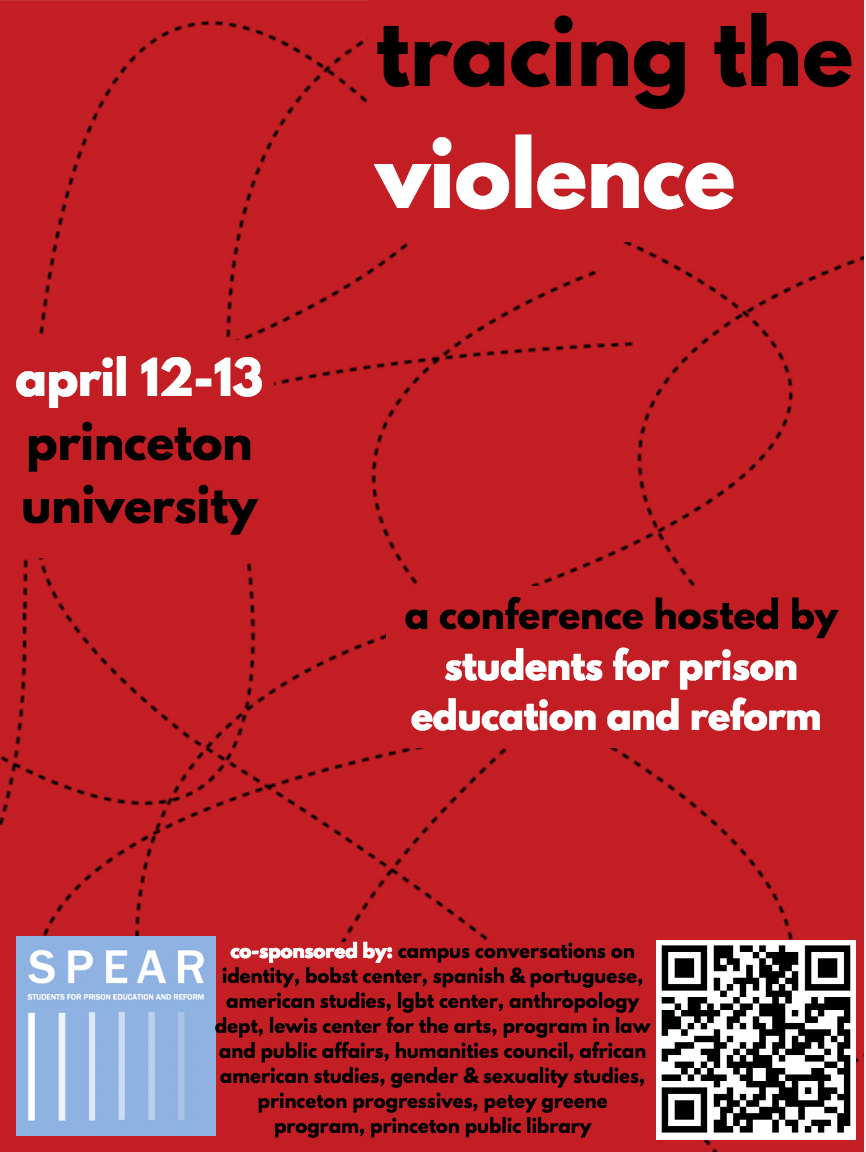Tracing the violence
april 12-13, 2019
“But what about violent crime?” This question is commonly raised as an objection to calls for radical reform, posed as a trump card to the idea that we could massively decrease prison populations and drastically reduce or eliminate criminalizing systems. Gathering leading organizers and experts on the carceral state, this conference addresses this question head-on, offering alternative frameworks for how to think about violence and the carceral state, and the importance of an inclusive and transformative justice movement.
Hosted on April 12-13, this year’s conference will assess the mainstream criminal justice reform movement’s tendency to focus only on non-violent and drug offenses, often excluding those convicted of violent and sexual offenses from the movement. However, over 900,000 people in prisons and jails—over 40% of all incarcerated people, and 55% of those held in state prisons—are there for “violent” offenses. Further, though prison populations have declined slightly in recent years as some convicted of drug offenses have been released, racial disparities in the prison system have remained largely unchanged.
This conference assesses how and why a massive segment of the incarcerated population is left out of the movement of reform—and sometimes even further vilified by reformers. We will seek to understand where violence originates, recognizing that policing and prisons are themselves sources of violence, and that many people convicted of violent offenses have themselves faced serious violence as result of intersecting marginalized identities.
Some questions we will explore are: What is “violent crime,” and how do we (mis)understand it? What are the consequences of a reform movement that most often achieves reforms that are “only for non-violent offenders”? What are possible non-carceral responses to violence? How do we address interpersonal and gendered violence while avoiding carceral feminism in the #MeToo era? How does a focus on individual acts of violence obscure structural violence and the violence of the penal system itself?
Recognizing that harm is something to take immensely seriously, our goals for the conference are to:
trace the violence present in communities back to its structural forces through panels and plenaries.
learn how to address harm and prevent violence through non-carceral means through workshops.
forge a robust and inclusive student and activist movement through workshops and trainings.
Schedule Overview:
Friday, April 12th, beginning at 4:30pm
Opening keynote by Michelle Jones, a doctoral candidate in American Studies at New York University.
A Screening of Free Men (2018), a documentary by activist and current Death Row incarceree of 25 years Kenneth Reams, followed by a call with Mr. Reams and a debrief featuring his wife, Isabelle Ize Reams.
Saturday, April 13th, beginning at 8:30am
Lectures by Dr. Marie Gottschalk on the need to broaden the movement to those convicted of “violent” offenses, and scholar activist James Kilgore on the spread of the carceral state and systemic violence.
Three panels featuring academics and activists on:
Radical Reform and Violent Crime (Kelly M. Hayes, Lena Carla Palacios, Donna Hylton, moderated by Dr. Ruha Benjamin)
Anti-Carceral Feminism, Sexual Violence, and Transformative Justice (Andrea Ritchie, Victoria Law, Ann Russo, moderated by Dr. Naomi Murakawa)
State Violence: The Chicago Torture Cases (Cindy Eigler, Gregory Banks, Timothy Chau Rose, moderated by Dr. Laurence Ralph)
Workshops facilitated by on-the-ground activists and advocates on transformative responses to violence and anti-prison organizing.
Workshops led by student organizers on how to start SPEAR on your campus, and toolkits for organizing concrete campaigns.
Networking opportunities for organizers and academics to share work, strategies, and expand the movement.
For a full schedule, click here.
